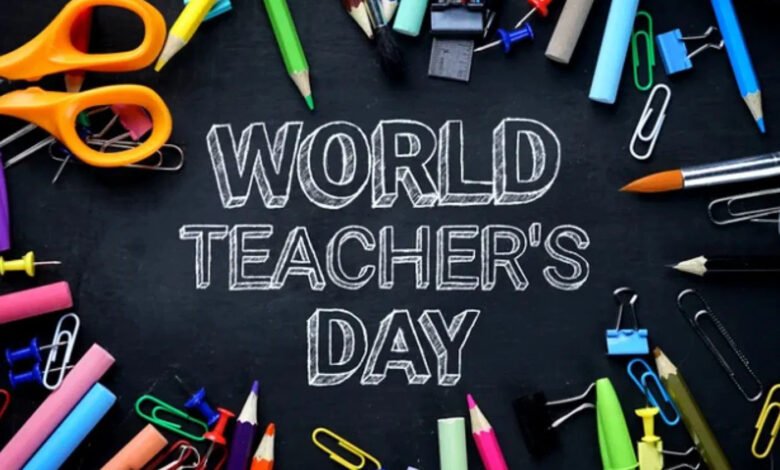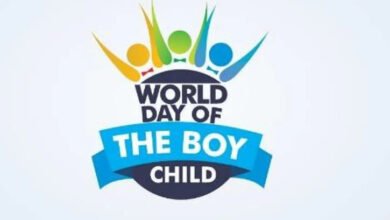World Teachers’ Day 2025: Recasting Teaching as a Collaborative Profession

World Teachers’ Day, celebrated each year on October 5, recognizes the dedication of teachers who nurture and educate children, inspire positive change, and help build a brighter future.
Officially recognized by UNESCO and its partners, the day commemorates the 1966 ILO/UNESCO Recommendation concerning the Status of Teachers, a landmark document that established international standards for teachers’ rights, responsibilities, training, employment, and working conditions.
Celebrated in more than a hundred countries, World Teachers’ Day serves as a moment to recognize the dedication and achievements of educators, reflect on the challenges they face, and advocate for stronger support systems and better resources to empower the teaching profession. Through conferences, school activities, and global campaigns, the world comes together to honor teachers and reaffirm their central role in fostering knowledge, growth, and societal progress.
Theme of World Teachers’ Day 2025
According to UNESCO and its partners, the global theme for 2025 is:
“Recasting Teaching as a Collaborative Profession.”
In many education systems, the focus is shifting from isolated, individual work toward structures that promote collaboration and peer support. These include shared professional development, mentoring systems, team planning, and leadership models that emphasize collective practice rather than competition.
UNESCO emphasizes that collaboration is not merely an act of courtesy; it is a powerful tool for improving learning outcomes, enhancing teacher well-being, and increasing retention rates.
This year’s theme also highlights key reforms for policymakers, such as funding professional learning communities, integrating mentorship into early-career teacher support, redesigning accountability systems to reward teamwork, and developing schedules that enable collaborative lesson planning.
History of World Teachers’ Day
UNESCO first declared World Teachers’ Day in 1994 to commemorate the anniversary of the 1966 ILO/UNESCO Recommendation. This historic document established global standards for teacher rights, obligations, training, working conditions, and the teaching–learning environment.
In 1997, UNESCO extended these principles to higher education through a second recommendation addressing the status of university faculty. Today, the day is co-convened by UNESCO, the International Labour Organization (ILO), Education International, and other partners to honor educators and advocate for their empowerment.
The Significance of World Teachers’ Day
Often working without fanfare, teachers quietly shape minds, communities, and futures. World Teachers’ Day reminds us that the strength of every educational system—and, by extension, every society, depends on how well its teachers are supported, respected, and empowered.
Recognition must go beyond symbolic gestures; it must translate into policies, respect, and practical support. To invest in teachers is to invest in human capital, national character, and collective destiny.
Here, the philosophy of The TeacherFIRE® Revolution, a global initiative founded in 2010 by Taiwo Akinlami under LawGuard360® provides a timely lens.
The movement affirms that:
“The rights of teachers are inseparable from the rights of children.”
Its creed insists that education must minister to both the head and the heart, raising complete children who combine values with numbers, dignity with brilliance, and resilience with knowledge.
TeacherFIRE® challenges us to understand that child protection and educational reform must begin with protecting those who teach. When teachers are underpaid, untrained, or unseen, children become collateral damage. But when teachers are equipped, honored, and supported, children, and nations flourish.
As one of its guiding principles declares:
“Care with your heart the real definition of passion and patience.”
This philosophy echoes UNESCO’s 2025 theme: collaboration and compassion are not soft ideals, they are systems of strength.
Why World Teachers’ Day Matters
World Teachers’ Day is important because it:
- Acknowledges teaching as a vocation requiring dedication, creativity, and lifelong learning.
- Draws attention to systemic issues educators face, making reform more than symbolic.
- Promotes collaboration between teachers, parents, students, and governments.
- Reinforces that supporting teachers is essential to improving student outcomes.
- Cultivates a culture of respect for those shaping the next generation.
Meaningful Ways to Celebrate World Teachers’ Day
World Teachers’ Day does not require extravagance; sincerity is its language.
- Students can write heartfelt notes reflecting on lessons that changed them.
- Teachers can share insights and challenges with peers.
- Schools can host storytelling sessions, brief recognition moments, or social media spotlights celebrating educators.
- Communities can organize panels, readings, or community service projects inspired by teachers.
- Governments can seize the moment to review and reform policies affecting teacher welfare and development.
Simple acts, when sincere, become lasting tributes.
Conclusion
World Teachers’ Day stands as a global testament to gratitude, respect, and unwavering commitment to those who build humanity’s foundations.
The 2025 theme reminds us that education flourishes through collaboration—and collaboration thrives where teachers are valued, not victimized.
The message of the TeacherFIRE® Revolution aligns seamlessly with UNESCO’s call: to recast teaching as a shared journey, where every teacher is both empowered and protected.
To honor teachers is to secure the future.
To strengthen teachers is to safeguard children.
To ignite teachers with passion and purpose is to build nations that last.
Happy World Teachers’ Day 2025.
May the fire in every teacher’s heart continue to burn brighter—for the children, for the classroom, and for the world.





